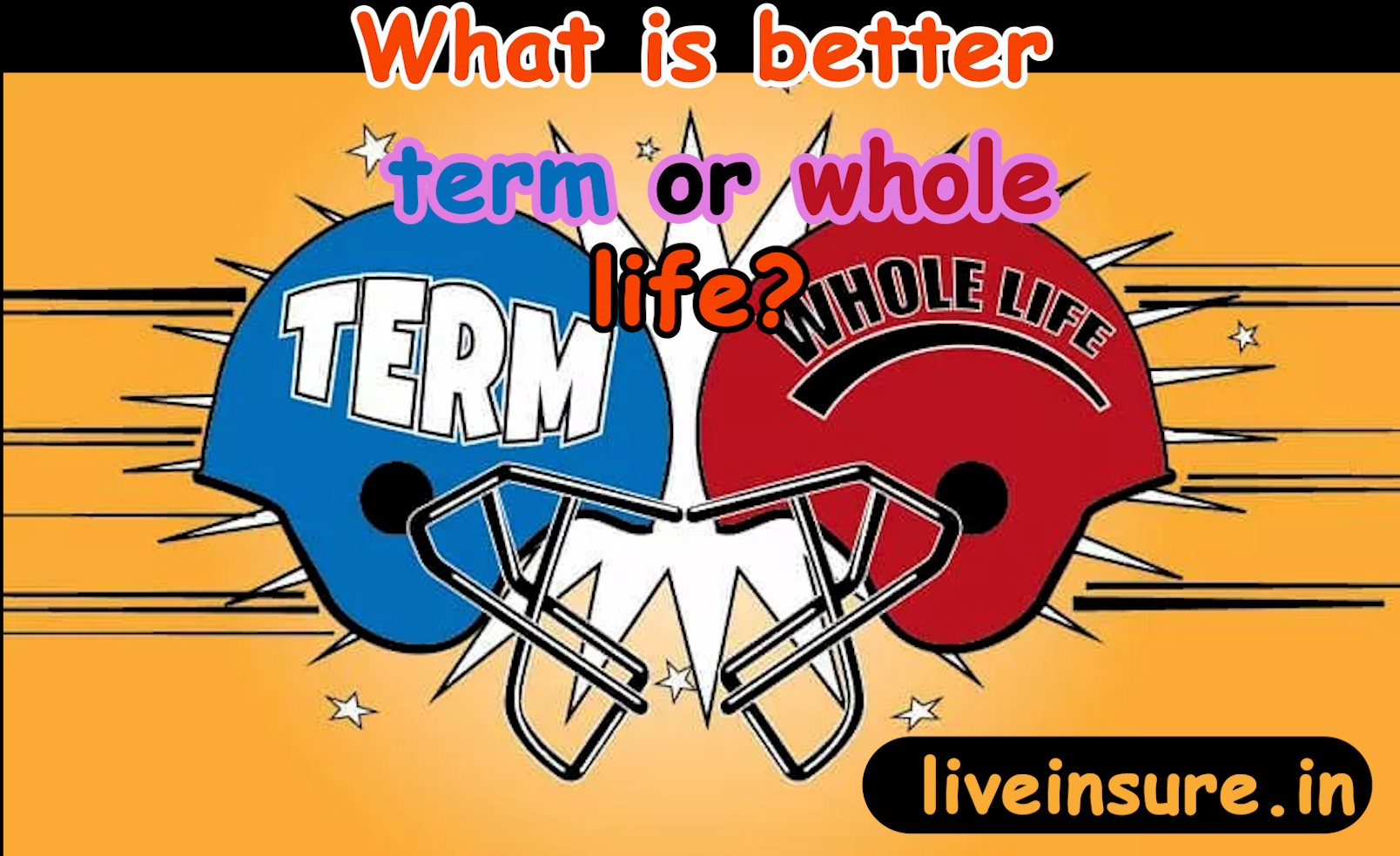What is term life insurance?
A term life insurance policy is exactly what the name implies: It’s a policy that provides coverage for a specific term or period of time, typically between 10 and 30 years. It is sometimes called “pure life insurance” because unlike whole life insurance, there’s no cash value component to the policy – it’s designed purely to give your beneficiaries a payout if you pass away during the term.
If you get a term policy to protect your family, you should think about whether your family’s need for life insurance will change before the time the term expires. For most people that means the kids are grown up and on their own, the house is paid off, and there’s some money that can serve as a safety net for the surviving spouse.
What is whole life insurance?
A whole life policy is the simplest form of permanent life insurance, so named because it provides coverage that lasts your entire life as long as premiums are paid. Unlike term, it’s not a “pure life insurance” product because it includes a cash value component. A policy has cash value when a portion of your premium dollars are invested and this sum grows over time on a tax-deferred basis, so you don’t pay taxes on the gains.
A policy’s cash value provides a number of benefits that you can use while you’re still alive. It takes a few years to grow into a useful amount, but once that happens you can borrow money against your policy’s cash value in the form of loans or withdrawals1, use it to pay your premiums, or even surrender it for cash to supplement you in retirement.
While there are other types of permanent life insurance, whole life is the simplest:
- The premium remains the same for life
- The death benefit is guaranteed
- The cash value grows at a guaranteed rate
Note that with some companies, such as Guardian, whole life policies can also earn annual dividends (a portion of the insurer’s profits) that can increase your cash value and provide other benefits. While not guaranteed, Guardian has paid dividends to participating individual life policyholders every year since 1868.
Term vs. Whole Life Insurance Pros and Cons
There are a few crucial differences in term and whole life insurance. We want to make it easy for you by breaking those differences down into pros and cons.
- Term Life Insurance Pros: It’s customizable, specific to your timeline, and usually costs less than whole life insurance.
- Term Life insurance Cons: If you outlive the term length, your coverage will end and you won’t receive any benefits. You will not be covered your entire lifetime and your policy will not accumulate cash value like an investment account does.
- Whole Life insurance Pros: The premiums will always be the same amount, the payout is guaranteed (subject to limitations and exclusions), and the value of your plan grows at a constant rate.
- Whole Life Insurance Cons: You cannot choose the length of the policy and it’s typically more expensive than term life insurance.
Whole life insurance advantages over term life insurance
Just like term life insurance, a whole life insurance policy will pay a death benefit to your beneficiaries upon your death. That’s where the similarities end.
While a term life policy covers you for a specified time period, a whole life policy will cover you for your life, so long as your policy remains in force. The insurer will pay the death benefit regardless of when you die.
In addition to providing the death benefit, a whole life insurance policy has benefits that are useful while you’re alive. Whole life insurance accrues cash value as you pay your premiums, which you can use to pay for virtually anything you wish.1 Depending on your insurance policy and provider, you may even receive dividends that you can use to pay premiums, increase cash value or receive as cash.2 A term life insurance policy doesn’t offer any of these benefits.
Because of the added living benefits, whole life insurance typically carries a higher price tag compared to term life insurance. Back to the car analogy: You’re going to pay more for a car rather than a taxi ride, but there are a host of additional benefits that come with owning your own vehicle (convenience, freedom to drive across the country if you want, hauling things around, handing it down to your 16-year-old).
People typically use whole life insurance when they want to have a guaranteed death benefit and the cash accumulation that will occur during your lifetime. Many people start with a small amount of whole life insurance and then gradually add more during their lifetime.
Can I Change My Mind and Switch?
Years after buying life insurance you might find that the policy you picked is no longer best. It happens. Finances and life’s circumstances evolve. There are potentially ways to reverse course without buying a new policy.
Changing term life to whole life
Term life insurance policies often include a “conversion” option that allows you to convert the policy to a permanent life insurance policy. There’s a deadline for doing this, so check your policy for the conversion period.
Changing whole life to term life
If you’ve built up cash value within a whole life policy, you can ask your insurer if you can use the cash value to switch to a term life policy that’s paid up and end the whole life policy. Your life insurance company will be able to tell you the length of the new term life policy based on the money in your cash value account.
Tips for saving on term vs. whole life coverage
- Consider term life first: If you just need temporary coverage, it’s always more affordable to buy term life insurance. The shorter your policy period, the lower the rates.
- Buy only what you need: Choose the term that will protect you best. For example, choose a 10-year term if your youngest child will be attending college soon and your mortgage is almost paid off. If your term policy expires and you have to renew or buy a policy, it will be much more expensive.
- Buy the right amount: Buy the coverage that you know you’ll need. For example, final expense life insurance has low coverage premiums that make it relatively affordable for people who need to cover impending funeral expenses.
- Shop around for rates: Make sure you’re getting a competitive market rate for your policy. Every carrier prices their policies a little differently, so you may be a better fit for one type of plan vs. another. Comparing a few quotes provides peace of mind that you’re getting the best deal for your policy.
Conclusion
Term life insurance provides sufficient coverage for most families, but whole life can prove useful in certain situations.
The best way to understand which one of them is for you is to consider your financial needs and budget. If you want the most affordable coverage or life insurance to act as an income replacement over a certain period, consider term life. By contrast, if your financial needs don’t have an expiry date, or if you want your life insurance policy to also act as an investment tool, whole life could make sense for you.




